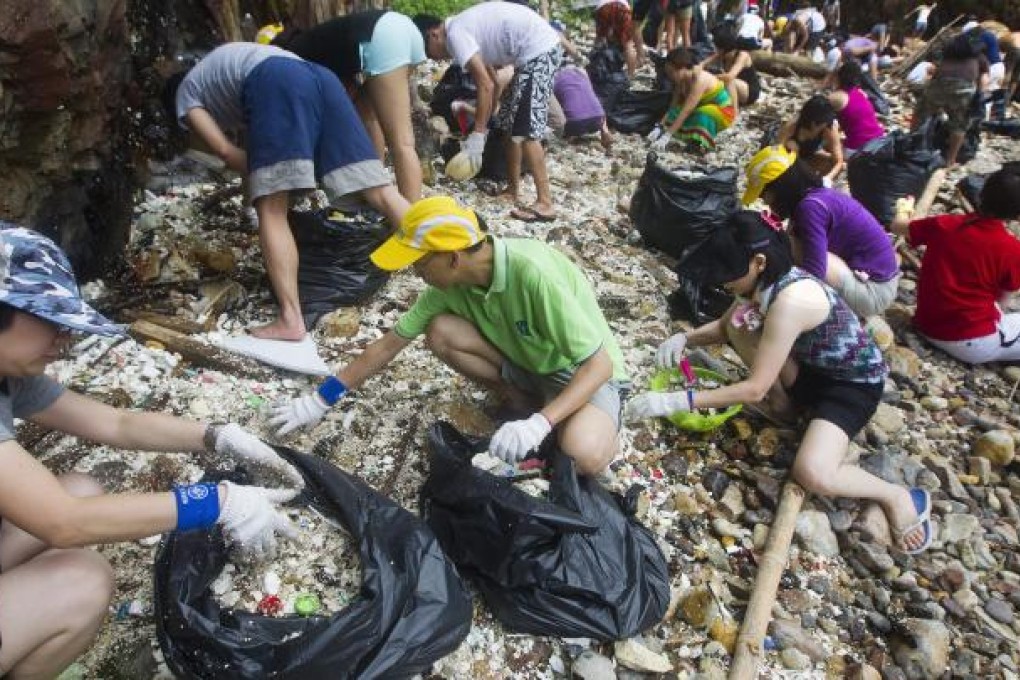Hong Kong media betraying public trust
Lau Nai-keung says the reports on pellet spill demonstrate misplaced priorities

Last Friday, the environmental group Hong Kong Coast Watch posted a series of messages on its blog blasting local and international media for failing to properly respond to its notification of the massive plastic pellet spillage that has left many beaches polluted.
Some 150 tonnes of pellets that belonged to Chinese oil and chemical company Sinopec spilled out of shipping containers that were knocked off a freighter in waters south of Hong Kong last month during Severe Typhoon Vicente. On some beaches, pellets have piled up like snow.
The South China Morning Post, together with the Chinese-language and international media, were blasted for "their lack of interest in investigating and reporting the incident and their sole interest in trying to embarrass the government".
According to the green group, the Post was notified of the massive pollution crisis on July 26 but the story was "hidden away" in the City section the next day. An editorial appeared only on August 8.
To be fair, the Post did respond, although not as enthusiastically as Hong Kong Coast Watch wanted, and as the English-reading community is only a small minority in the city, it is not too fair to single out this paper for blame.
It is now common practice that "unless you can get dirt on the government" or some entity related to the mainland authorities, the Hong Kong media will not be interested. That has been apparent in the pellet-spill incident, where the focus of the reporting has been to try to embarrass the government and Sinopec, rather than on informing the public and rallying participation to defuse the crisis.
If one cares to look at the government website, it's clear that data has been collected since July 24 and there have been daily updates since August 6. Clean-up work also began in time - but, without public support, progress has inevitably been much slower than the crisis demands.